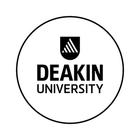Bachelor of Exercise and Sport Science
Bachelor of Exercise and Sport Science
You will learn how to apply knowledge and skills in exercise and sport science to improve the performance, health and participation of individuals, athletes and teams. Why not fulfil your potential in the world of exercise and sport science and graduate with a practical degree that lets you hit the…
Categories
COURSE DESCRIPTION
You will learn how to apply knowledge and skills in exercise and sport science to improve the performance, health and participation of individuals, athletes and teams.
Why not fulfil your potential in the world of exercise and sport science and graduate with a practical degree that lets you hit the ground running in the industry?
Develop the expertise to become a professional leader in exercise and sport science, studying anatomy and physiology, technology, behaviour and best practices that underpin exercise and sport science. Tailor the course to your interests and career goals, choosing from the following majors:
applied sport science
disability and inclusion
exercise physiology
family, society and health
health promotion
nutrition
physical activity and health
psychology
sport coaching and coaching ecosystems
sports nutrition
strength and conditioning.
You will have the opportunity to participate in work experience placements in a variety of environments such as:
AFL/AFLW football clubs
VFL/VFLW football clubs
Football Federation Victoria
Cricket Australia
Tennis Australia
WNBL clubs
private strength and conditioning and high-performance centres (including Institutes of Sport)
recreational gyms
rehabilitation clinics.
All students participate in two industry-based practical experiences. In second year, students complete 80 hours of practical experience at a pre-approved host organisation through the Exercise Programming unit. The Exercise and Sports Science Practicum in final year provides a minimum 140 hours of practical experiences. These are a core feature of the course which, combined with career mentoring by staff in particular units, set you apart from other graduates.
Career outcomes
Take advantage of Australia’s golden decade of sport and the significant industry growth that it is driving. As a graduate of the Bachelor of Exercise and Sport Science can look forward to diverse career opportunities across a wide range of organisations. Accredited Exercise Scientists are qualified to prescribe exercise to improve health, wellbeing, fitness and performance, and to assist in the prevention of chronic conditions, at an individual, community or population level. As well as typical roles in the sport, exercise, coaching and fitness industries, you may pursue employment in sports science, community health and wellness, or rehabilitation.
Upon graduating, you may find employment opportunities in:
elite, professional sporting clubs
local and state government agencies
professional sporting bodies
local and community sporting clubs
hospital and rehabilitation clinics
fitness and aquatic centres
private health and recreation centres
large organisations in corporate health.
After successfully completing the Bachelor of Exercise and Sport Science, you may consider applying for further study to advance your career in the exercise and sport science industry. We offer:
Bachelor of Exercise and Sport Science (Honours)
Master of Clinical Exercise Physiology
Master of Applied Sport Science
EDUCATIONAL INSTITUTION
Deakin University is ranked in the top 1% of universities worldwide (ARWU). It is a global leader in many areas of study including accounting and finance, business, engineering, education, nursing, sport science, and sport management. It is known for its industry-based learning, with all degrees offering the opportunity for work placements. Deakin has four campuses across the state of Victoria, offering high-quality teaching and first-rate facilities. Our students love studying here – that is why Deakin University has been ranked #1 for course and student satisfaction in Victoria for 13 years (Australian Graduate Survey 2010–2015, Graduate Outcomes Survey 2016–2022 (GOS)).




